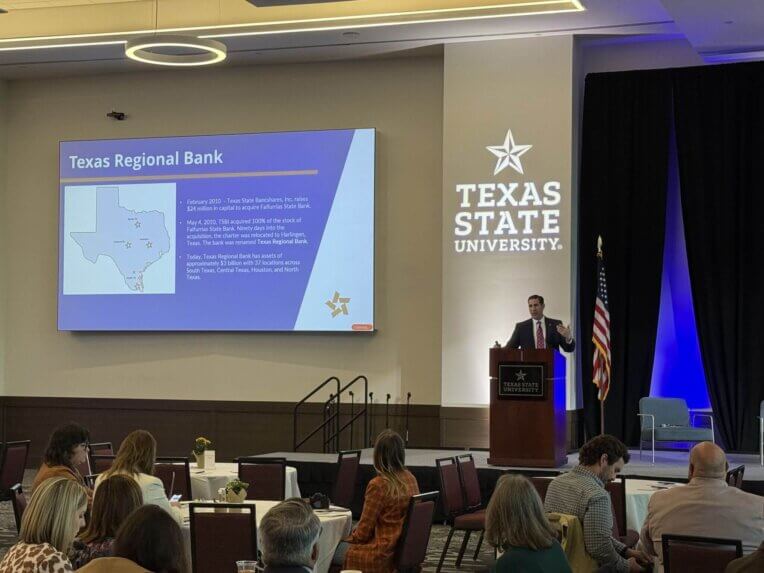Text message scams, also known as smishing, are one of the fastest-growing types of fraud today. According to 2024 data from the Federal Trade Commission, consumers reported $470 million in losses to these scams, more than five times the 2020 number. Criminals are using texts that look legitimate to trick people into sharing information, clicking malicious links, or calling fake customer-service numbers.
At Texas Regional Bank (TRB), your security is our priority. We’re sharing important guidance from the American Bankers Association’s (ABA) Banks Never Ask That campaign, a nationwide effort to help consumers recognize scams before they happen.
In This Article
- Common Text Scams to Watch for
- Five Red Flags from Banks Never Ask That
- How to Protect Yourself
- TRB Will Never Ask That
Common Text Scams to Watch For
- Fraud Alerts: Texts claiming suspicious activity on your account and urging you to call or click immediately.
- Fake Delivery Notices: Messages posing as UPS or USPS saying a package can’t be delivered until you take action.
- “Wrong Number” Texts: Seem harmless at first but often evolve into romance, job, or investment scams.
Five Red Flags from Banks Never Ask That
- If a text feels off, it probably is. Watch for these warning signs.:
- They ask you to open a link
- They tell you to keep it a secret.
- They send an attachment.
- They request personal information.
- They pressure you to send money or act fast.
How to Protect Yourself
- Don’t click links in unexpected messages. Visit the company’s official site or app instead.
- Be skeptical of urgency. Scammers want you to act before you think.
- Verify independently. use published phone numbers or official websites, not those in the message.
- Turn on multifactor authentication (MFA) for online banking and other sensitive accounts.
- Report scam texts by forwarding them to 7726 (SPAM)
“These scams are getting more sophisticated, but they all rely on one thing—catching you off guard,” said Omar Rodriguez, Director of IT Operations at TRB. “Pause before reacting to any unexpected text, especially those demanding immediate action or personal information. Taking a moment to verify can stop a scam before it starts.”
TRB Will Never Ask That
Texas Regional Bank will never contact you to ask for your password, PIN, or one-time passcode by text, phone, or email. If you’re ever unsure, delete the message, and contact your local branch or our Customer Care Center using the numbers published on our website, trb.bank.
For more tips and best practices, visit ABA’s campaign website, banksneveraskthat.com, or TRB’s Security Archives.



